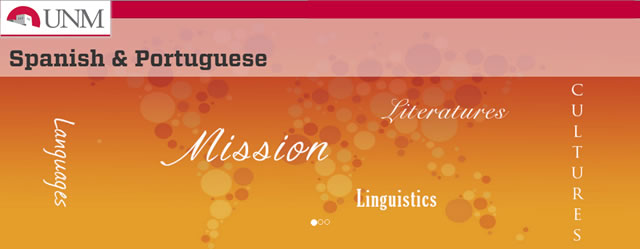
Spanish and Portuguese ETDs
Publication Date
9-26-1969
Abstract
The problem of African influence in Brazil centers around the city of Salvador da Bahia. It was here that the largest nucleus of slaves imported from western Africa existed. Today the city remains the center of ethnic activities originating from western Africa, and therefore Bahia is the focal point where inquiries concerning Brazil's African heritage should be initiated.
In the libraries and public archives background materials were collected dealing with past studies in Afro-Brazilian ethnolinguistics. An analysis of these previous studies provided insights into both speculative and scientific methods of investigation. The works served to relate con-temporary social and ethnolinguistic problems to the historical events which determined the infiltration of African elements into Bahian society.
Field work was carried out among thirty fetish cult organizations (called candombiés) to observe traditional customs and languages that have been preserved in Bahia from the earliest days of slave traffic between Africa and Brazil. Private interviews were held with the leaders of five of the largest and most important cult houses in the city. These houses represented the three west African "nations" which were imported in the largest numbers to Bahia: the Ewe, Yoruba and ljesha (a branch of the Yoruba). They exist as vestigial nuclei which are important sources for research concerning the problems of African penetration into Bahian life. The songs and utterances in these African tongues supplied some understanding of lexical influences of Negro languages on Bahian Portuguese. All of the Ewe songs and expressions were recorded in a series of interviews held with the leader of the only existing Ewe cult house in Bahia, mãe Valentina Maria dos Anjos. The Yoruba materials were gathered from four different fetish chiefs: mãe Cecilia Marla do Bomfim, mãe Zefinha Vermelha Zé Coitumba, an anonymous male leader (pai de santo) and Deosc6redes M. dos Santos, a contemporary Bahian author and pai de santo.
The data obtained in this field work plus vocabulary items of known African origin were circulated in the form of questionnaires to members of all social levels in Bahia. The answers obtained from these questionnaires aided in determining active and passive usages of words of African roots as well as in providing information concerning the frequency of usage of the words in different levels of Bahian society.
The results of these studies proved effective in demonstrating how and to what extent certain west African ethnolinguistic elements have penetrated, influenced and enriched Portuguese culture in Bahia.
Degree Name
Spanish & Portuguese (PhD)
Level of Degree
Doctoral
Department Name
Spanish and Portuguese
First Committee Member (Chair)
Stanley Stewart Newman
Second Committee Member
Jack Edward Tomlins
Third Committee Member
Garland Dee Bills
Language
English
Document Type
Dissertation
Recommended Citation
Megenney, William W.. "An Ethnolinguistic Study of West African Influences on Bahain Portuguese." (1969). https://digitalrepository.unm.edu/span_etds/135
Included in
European Languages and Societies Commons, Latin American Languages and Societies Commons
